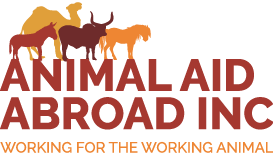Tick-borne diseases in Zambia
Our partner group in Zambia, Mwamfumba Multi-purpose Cooperative Animal Welfare Society (MAWS), has been working tirelessly in the past months, with the areas of Chibombo and Chisamba experiencing an outbreak of foot and mouth, and tick borne diseases such as anaplasmosis, heart water and corridor disease. After a ban on livestock movement and widespread vaccinations, the foot and mouth disease outbreak is now under control. The tick-borne diseases however, are running rampant and have claimed more than 200 animals in the area. One farmer lost his entire herd of 17 cattle and 9 working oxen.
The group, working in collaboration with the government, has been doing their best to travel to the village communities and attend to the sick animals infected with corridor disease.
Donkeys are fortunately fairly protected from this disease and so lately MAWS have attended three births, 14 dewormings, 15 minor wounds caused by poor harnessing, 3 larger wounds caused by fighting and poor harnessing, and no other serious diseases among the donkey population.
In the cattle population however, there were 217 deaths from corridor disease, 175 dewormings, 411 treated for tick-borne diseases, 68 births and 9 abortions. While tick and fly borne diseases are preventable, the farmers cannot afford to buy the expensive acaricides required and worse, they also can't afford the drugs for the treatment of these diseases, hence the high number of deaths.
Aside from treating the animals in this area struggling with this outbreak, MAWS also made and distributed 15 donkey harnesses, and trained 5 harness makers in Lesho villages in the Chibombo district. They have started programs in villages and government schools to engage children and develop their knowledge and understanding about proper animal welfare, making them ambassadors in their communities and making working animal welfare a way of life.
Moving forward, MAWS are striving to continue their education programs, encouraging prevention of ticks and tick-borne diseases, and maintain the mobile veterinary clinic to improve animal welfare and health management both through education and mobile services, but they need your continued support to do this.
